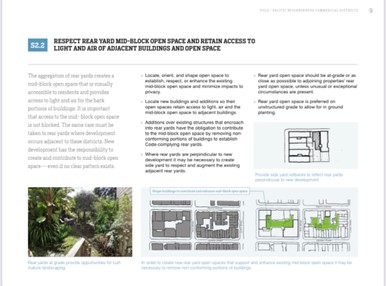REPORT TO THE RHN BOARD
DZLU MEETING DATE: May 24, 2022 (via Zoom)
1. ONGOING POLICY UPDATES
a. HOUSING—SF LEGISLATIVE PROPOSALS
Ongoing discussions have been held at the Board of Supervisors regarding proposed fourplex legislation for single-family zoned lots. In contrast to Sup. Mandelman’s original proposal outlined in previous reports, other Supervisors have put forward competing proposals or amendments. These generally increase affordability requirements or add rent control and other mandates to units created on affected lots. Planning Dept. analysis has maintained that these proposals would cause projects to be less likely to be sufficiently profitable to developers to generate new housing. See link below to Examiner article:
In another area of attention, there are two potential “dueling” ballot measures for November, the first backed by Mayor Breed and seeking signatures, and a second proposed by several Supervisors. Both streamline the permitting process for several categories of affordable housing. These include projects with ten or more units that are 100% affordable, or are designated for SF teachers, or have 15% more affordable units than currently required by SF law. If such a project meets all existing local planning and zoning requirements, it would be exempt from discretionary and environmental review.
The competing initiative would mandate that the availability of affordable units be targeted to those with lower income levels than the first proposal and would also require a more highly specialized classification of union laborers. Many housing proponents claim that both requirements would make projects less likely to be financially feasible. See link below to Chronicle article:
https://www.sfchronicle.com/sf/amp/S-F-fight-over-affordable-housing-Supervisors-17193416.php
Lastly, Sup. Peskin has proposed a ballot measure to require that residential units in projects that take advantage of density bonus programs designed to incentivize housing, such as the city’s Home-SF program or the state’s density bonus program, become rent-controlled. As in the other ballot measure discussed above, many housing policy analysts maintain this would deter production of affordable units. Below is a link to a Chronicle article on this:
https://www.sfchronicle.com/sf/amp/sf-rent-control-17193991.php
To qualify for the November ballot, a measure proposed by a Supervisor requires six votes. A citizen-initiated proposal requires 52,000 signatures by July 11.
b. SB 9 OBJECTIVE DESIGN STANDARDS
Architectural standards were approved by the Planning Commission on 4/28/22 for single-family zoned lots being densified under SB 9. These cover such items as building materials for windows (vinyl not permitted on street-facing windows), recesses or projections at windows to create shadow lines and entrance treatment. Massing and siting guidelines had been previously approved as described in earlier reports.
c. MID-BLOCK OPEN SPACE IN ALLEYS IN SE RUSSIAN HILL
DZLU had discussions with Upper Chinatown Neighborhood Association (UCNA) representatives about the cultural as well as physical importance of mid-block open space on Bernard St. and on other nearby alleys in the blocks comprising Upper Chinatown, at the south-east edges of Russian Hill. DZLU shared the City’s Polk-Pacific Special Area Design Guidelines whose development RHN/DZLU had participated in, especially the guideline specifically addressing mid-block open space in such alleys, attached below. DZLU offered to explore supporting future efforts of UCNA to reinforce the importance of these spaces.
d. HISTORIC PRESERVATION
Progress on the City’s inventory of historic resources, not updated since 1976, has been hampered by short staffing. The interest and experience of RHN/DZLU members in volunteering to support this effort was shared with Planning. This would build upon RHN’s prior experience assisting in the research for the three National Register Historic Districts on Russian Hill in 1986.


Leave a Reply